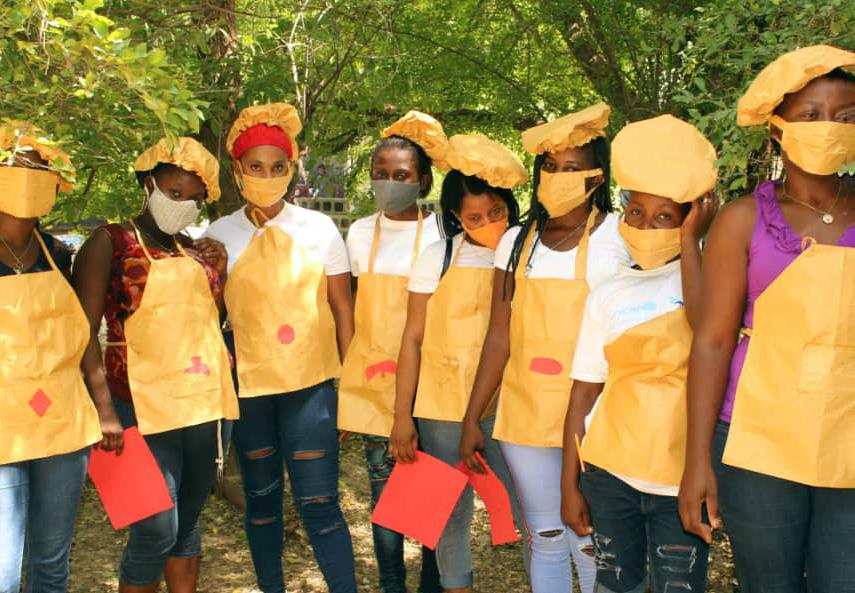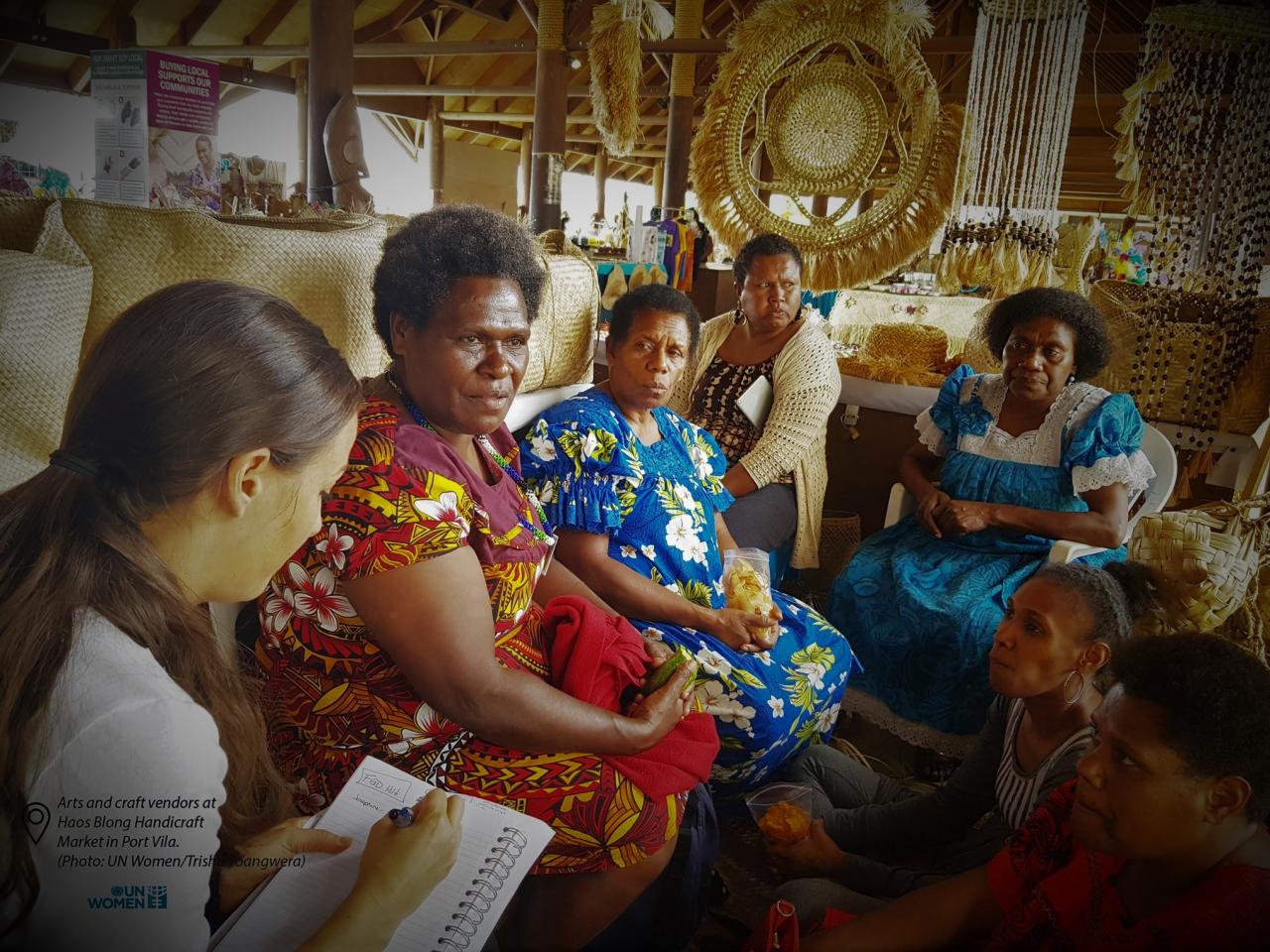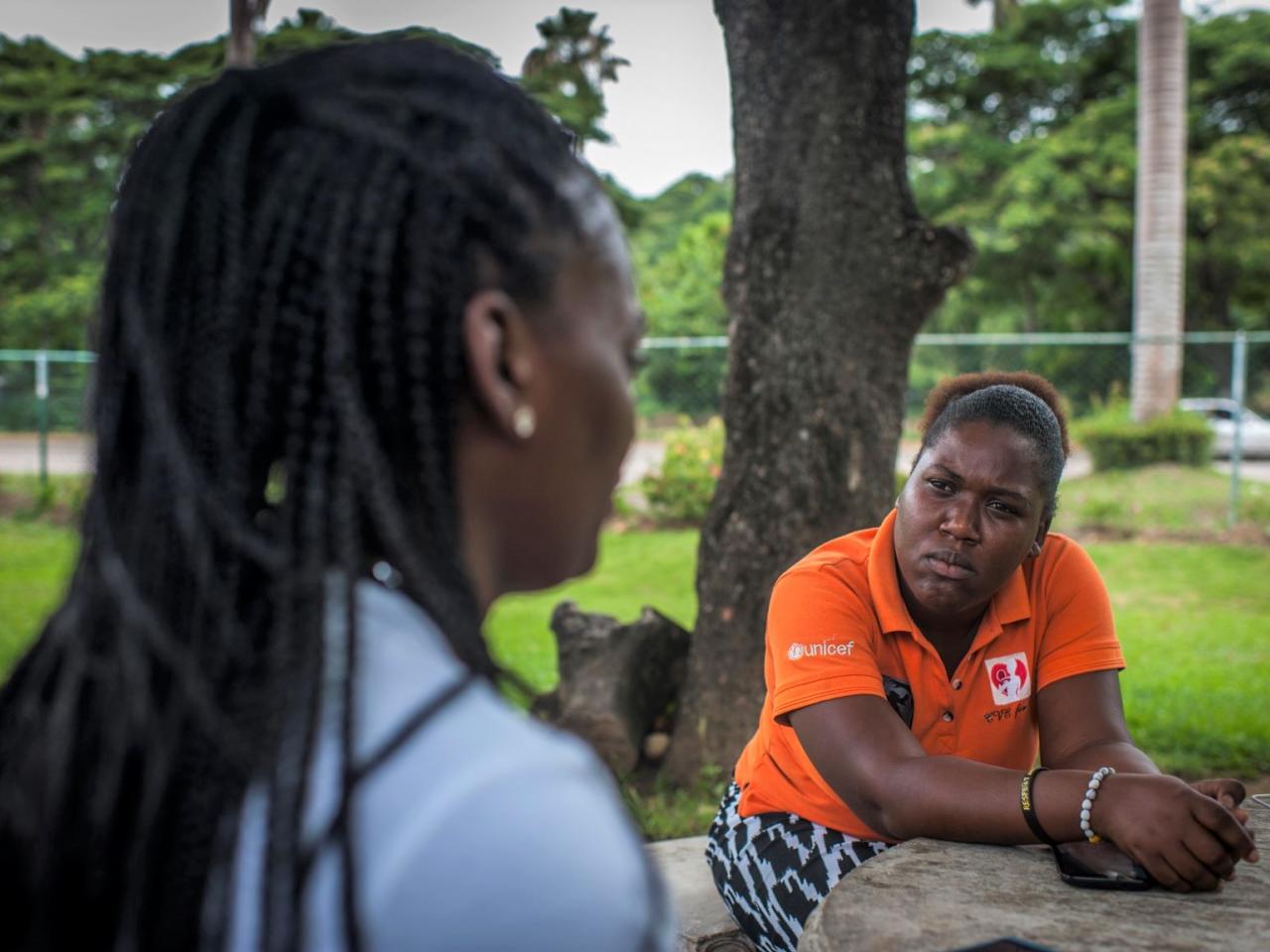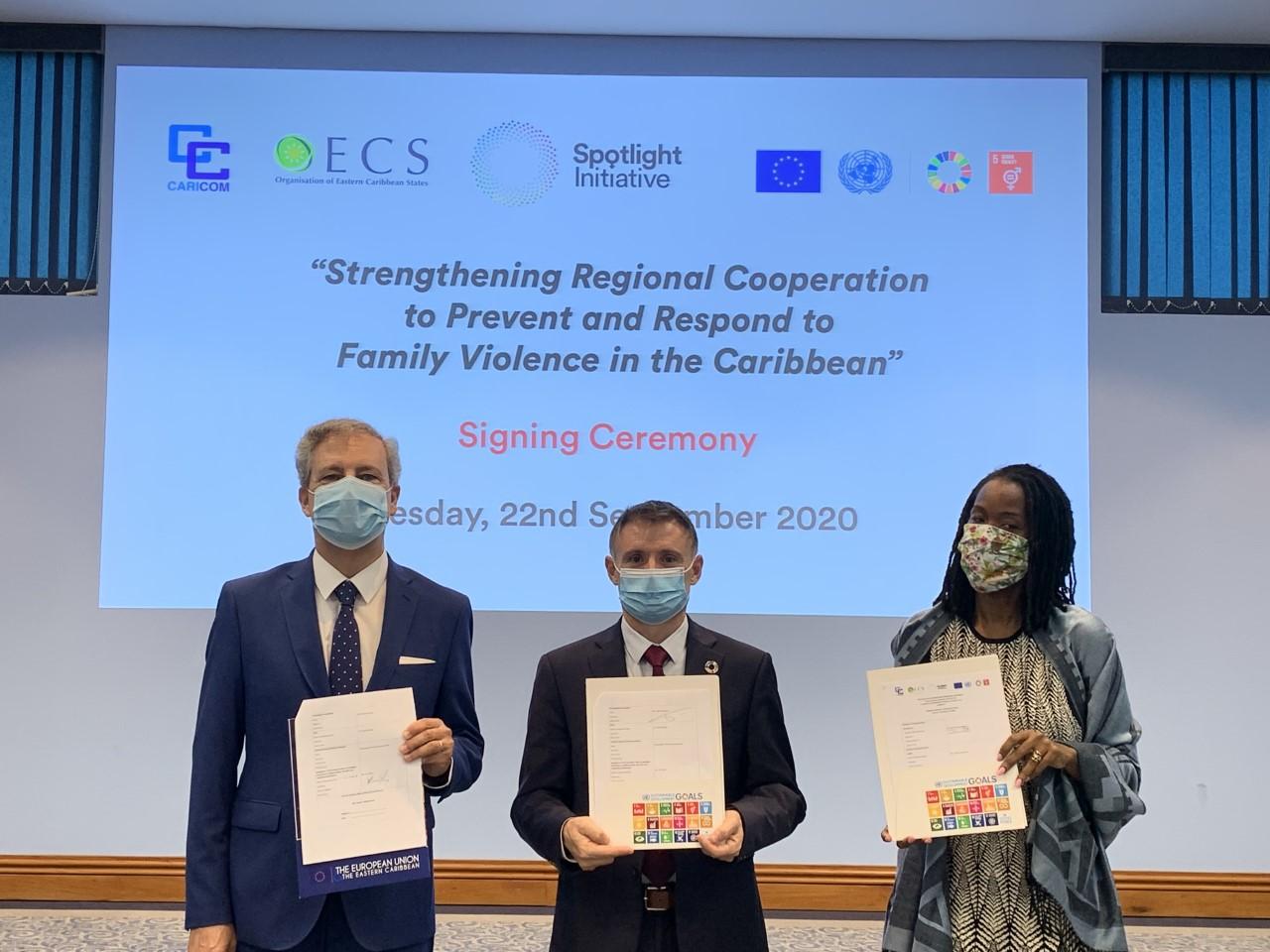In Haiti, vocational training offers sex workers a way out of violence
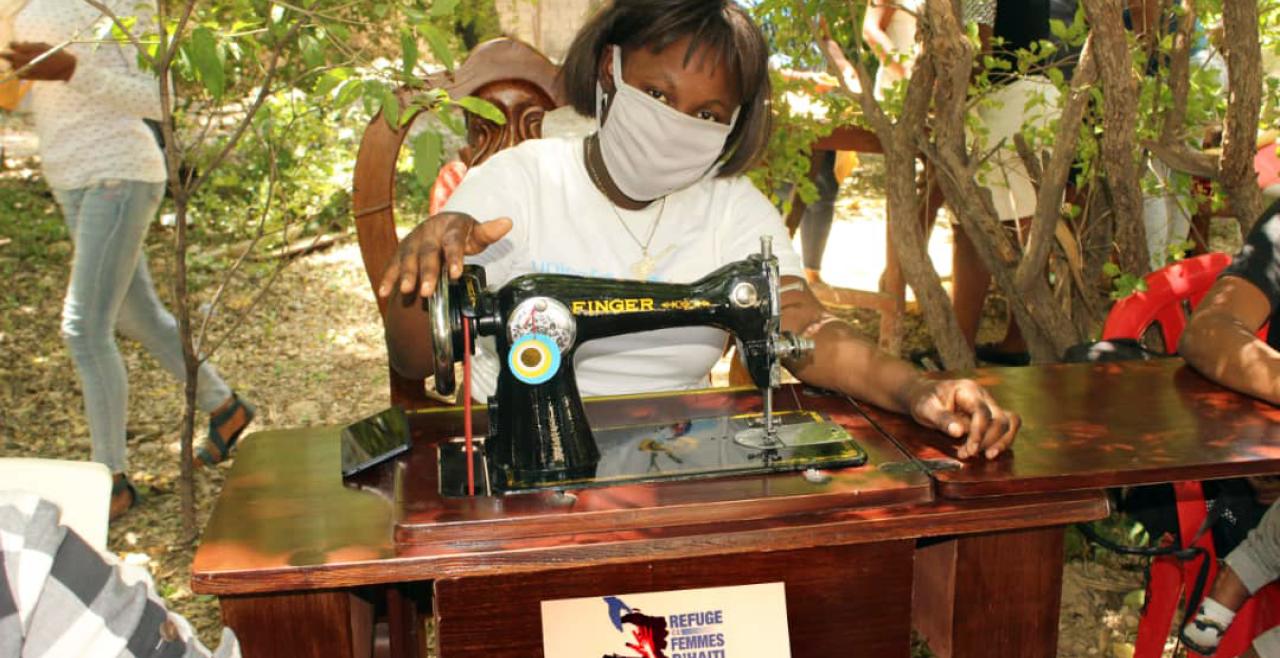
PORT-AU-PRINCE, Haiti - “There are a lot of women in Haiti who do not have independence,” says Novia Augustin, President of Refuge des Femmes d’Haïti, an NGO that supports the nation’s most vulnerable women. “It is their husbands who give them permission to go out, who give them the money for shopping. Women often do not have the right to work. And when their husbands want to have sex, they can't refuse. "
For Ms. Augustin, the answer is clear: Haitian women must have financial independence if they are to have true autonomy over their lives and bodies.
“If you have your financial means, you can make decisions in your family. If it's the man who gives you everything, there are some things that you can't decide," she says.
“The streets are violent, it’s not a good place to be at all. Anyone can attack you at any time... This [training] is a way for me to leave the streets."
During the COVID-19 pandemic, Refuge des Femmes d'Haïti partnered with UNDP through the Spotlight Initiative to offer vocational training to 25 female sex workers. According to WHO, sex workers face high levels of violence, stigma, discrimination and other human rights violations. Women taking part in the programme learned to sew protective masks and make detergent to help meet increased demands for PPE and hygiene products during the pandemic. Not only does the production and sale of these items provide an alternative source of income, but the women were able to help their community during a health crisis.
“The streets are violent, it’s not a good place to be at all,” said one woman who attended the training*. “Anyone can attack you at any time, and others keep looking at us as though we are criminals. This [training] is a way for me to leave the streets. Refuge des Femmes has given me some basic tools so I can start changing my life, and I see people look at me differently now. I see that people are starting to respect me.” Feeling a sense of control over their future is a small but important change for many of the women.
“You meet women who… were subjected to violence and who were forced to stay with their husbands because they have several children and could not afford to raise these children on their own," Ms. Augustin says. “Most of the time when women have fairly young children, they see themselves as having no choice but to manage to find a man or engage in prostitution... This is the kind of choice vulnerable women have to make."
In Haiti, nearly one in three women has experienced physical violence since the age of 15. Additionally, 34 per cent of married women have experienced emotional or sexual violence from their partner.
“Women sex workers are women who often started very young,” says Ms. Augustin. "For example, I know of one woman who is 38 years old now but who started sex work at 17. She had children, she struggled to take care of them and she had to engage in prostitution. Now, her children are grown up but she continues because she has never had the means to find another profession."
Ms. Augustin says the three-month training programmes and support that Refuge des Femmes d’Haïti provides gives many women something they have never had: a choice.
“We have become a family,” she says. “We [at Refuge des Femmes] told ourselves that it is up to us, women, to support young girls and vulnerable women, to allow them to have confidence in themselves and to understand that they can succeed on their own and do not always have to have a man’s support."
By Jonathan Boulet-Groulx
*Name withheld to protect privacy.

